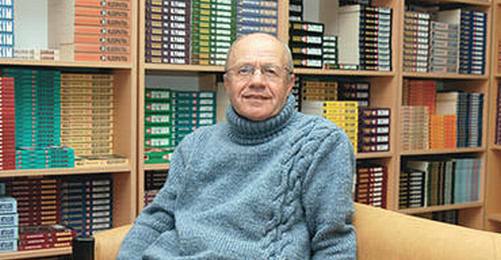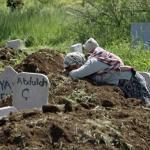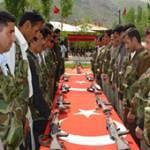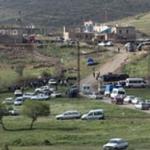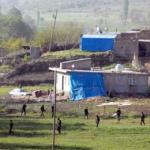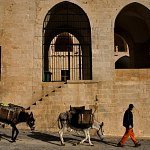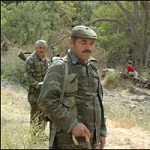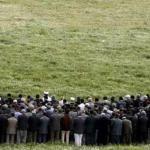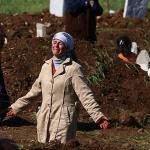Sociologist Dr. İsmail Beşikçi has written an article on the massacre in a village in the southeastern province of Mardin for bianet. As a young PhD student, he wrote his thesis on the Kurdish Alikan tribe. Later, 32 of his books were banned and he spent 17 years in prison for his studies on Kurds.
The article was penned (in Turkish) in response to questions by bianet. Sub-headings have been added by bianet.
What happened in the Zangırt* village in the Mazıdağı district of Mardin on 4 May cannot be explained with only one reason. This barbarity cannot be explained only with the feudal structure, only customs, only the village guard system, only ignorance and a low level of education, only economic underdevelopment (or more accurately having been left economically underdeveloped).These and other reasons caused this event.
Village guard system
At the basis of all the reasons listed above lies the denial of the existence of a Kurdish people. The state’s baic Kurdish policy is assimilation. When some insist on holding on to their Kurdish identity, a rise in state terror is common practice. The village guard system came about in this context. Forcing Kurds to kill Kurds is a systematic state policy. The state did not only give the village guards arms, they also gave them wide-ranging authority. All kinds of illegal activities carried out by village guards aginst their own people, Kurds, were met with tolerance or studiously ignored by the state.
Kidnapping young women, highway robbery, rape, racketeering, and taking over the land of those who left the villages when they refused to become village guards – all this became more common in the process.
State protecting feudalism
Feudal institutions like tribes, shaikhs, and large landholders have been protected by the state itself because the state can prevent national developments among Kurds with the tribes and sheikhs it has tied to itself. It is true that today’s Kurdish nationalist movement and social struggles and their leaders have emerged from the working classes and poor Kurds. The village guard system offered these feudal relations not only psychological but also material support. It is possible to see these people at public bids. Licences to open petrol stations are given to these people. The dealership rights for certain basic consumer goods are given to these people and their relatives.
The tribal leaders and sheikhs who were sent to the gallows for struggling against the state in the 1920s and 1930s were those who did not adopt the official position.
Religious movements
When the state sees a headscarved woman in Turkey’s western regions, it reacts by saying that sharia is coming and warns the public against such religious currents. However, the same state encourages various fundamentalist movements and institutions in the Kurdish region. It is known that the Hizbullah was founded by the state in order to fight against terrorism, in order to be used against the PKK. It is state policy to increase the number of Koran courses in the Kurdish regions because the state believes that it can only prevent the development of nationalist sentiment among Kurds with religous movements.
Feudal values corroding
Feudal societies and institutions have certain values. Not targeting or killing women or children in blood feuds is an important value. Another important value is to kill the adversary not from behind, but face to face, or to fight honestly. Another value is not to hand anyone who has sought refuge with them, even if he is their adversary, over to the state or an adversary. These are values based on honour in feudal society. However, with state policies denying the existence of a Kurdish people and a war of around 25 years, these values have become corroded.
The state has encouraged this corrosion. It has supported tribal leaders, sheikhs, large landholders and allowed them to survive, while at the same time making sure these values were destroyed. The policies of letting Kurds kill Kurds destroyed these values.
When the Hizbullah shoots patriotic Kurds in the back of the neck, this is a sign of this degeneration. When the PKK attacks village guards and sometimes also targets women and children, this is again a sign of degeneration. It is clear that they have been caused by the obliteration of a sense of honour.
The state is protecting the village guard system as a means of letting Kurds kill Kurds. The land of those who leave the villages because they do not want to become village guards is taken over by village guards. That is why returns to the villages by displaced people are being obstructed by village guards. Arms are being used to prevent families from returning to their villages and working their land. The state is not offering the necessary security precautions. It is clear that this has become an important reason for strife.
Media
It is inappropriate of the Turkish media to try and link the tragedy to feudalism, customs and tribalism. It has to be questioned why feudal institutions are kept alive and why the village guard system is consistently defended. The Turkish press is in shock over the events in Zangırt village, but we also know that the Turkish press hid the truth about the extrajudicial killings [by state organs in the Kurdish regions], so I do not find the current stance very sincere.
In the evening of 6 May (7.30 pm), the Difference of Interpretation (Yorum Farkı) programme was shown on NTV. Prof. Emre Kongar and journalist Mehmet Barlas evaluated what had happened in the Zangırt village. They spoke about the ignorance and lack of education of the people, of customs and tribalism. They did not once mention the village guard system. They discussed the necessity of land reform. The same two people spoke again on 7 May, this time mentioning the village guard system. However, they still avoided connecting it to the Kurdish question.
Without drawing attention to the state’s policy of denying the existence of Kurds, and without questioning the role of village guards in this process, it is impossible to understand such tragedies. (İB/TK/AG)
____________________________________________
*Zangırt is the Kurdish name for the village where the massacre took place. Officially, it is today called Bilge, a Turkish name.





